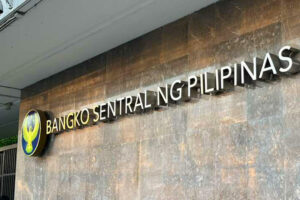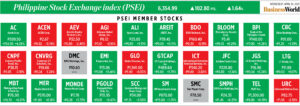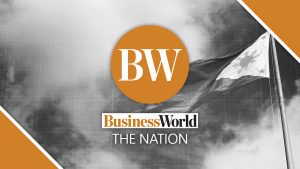Term deposit yields end mixed

YIELDS on the Bangko Sentral ng Pilipinas’ (BSP) term deposits ended mixed on Wednesday following the Treasury’s recent issuance of new 10-year benchmark bonds and as the offering was undersubscribed.
The central bank’s term deposit facility (TDF) attracted bids amounting to P91.654 billion on Wednesday, below the P100 billion placed on the auction block and the P162.305 billion seen a week ago for a P140-billion offer. The BSP awarded just P91.154 billion in deposits as both tenors went undersubscribed.
Broken down, tenders for the seven-day papers reached only P42.526 billion on Wednesday, lower than the P50-billion auctioned off by the central bank. This was also below the P78.059 billion in bids for the P70-billion offer seen the previous week. The central bank awarded only P42.026 billion in one-week papers.
Accepted yields ranged from 5.455% to 5.6%, a slightly higher band compared with the 5.45% to 5.585% recorded a week ago. This caused the average rate of the one-week deposits to increase by 1.2 basis points (bps) to 5.5642% from 5.5522% previously.
Meanwhile, bids for the 14-day term deposits amounted to P49.128 billion on Wednesday, lower than the P50-billion offering and the P84.246 billion in tenders for the P70 billion placed on the auction block last week. The BSP accepted all bids submitted for the tenor.
Accepted bids carried rates from 5.53% to 5.7%, slightly narrower than the 5.52% to 5.7% margin recorded a week ago. With this, the average rate for the two-week deposits declined by 1.62 bps to 5.6176% from the 5.6338% logged in the prior auction.
The BSP has not auctioned off 28-day term deposits for more than four years to give way to its weekly offerings of securities with the same tenor.
The term deposits and the BSP bills are used by the central bank to mop up excess liquidity in the financial system and to better guide market rates.
“The latest BSP TDF auction yields were mixed after the recent 10-year local Treasury note issuance siphoned off some of the excess peso liquidity from the financial system,” Rizal Commercial Banking Corp. Chief Economist Michael L. Ricafort said in a Viber message.
The government raised a total of P300 billion from its offering of new 10-year fixed-rate Treasury notes (FXTN), 10 times the initial P30-billion program. The issuance was listed on the Philippine Dealing & Exchange Corp.’s fixed-income board on Monday.
The Bureau of the Treasury borrowed an initial P135 billion from the benchmark papers at the rate-setting auction on April 15 and held a public offer that ended on April 23.
The notes fetched a coupon rate of 6.375%. Accepted bid yields ranged from 6% to 6.4%, resulting in an average rate of 6.286%.
The FXTN offer was held under a new issuance format targeting institutional investors like corporates, cooperatives, trust funds, retirement funds, and provident funds.
Mr. Ricafort added that TDF yields were mixed as global markets remain volatile amid the ongoing US tariff policy developments.
Risks are high that the global economy will slip into recession this year, according to a majority of economists in a Reuters poll, in which scores said US President Donald J. Trump’s tariffs have damaged business sentiment, Reuters reported.
Just three months ago, the same group of economists covering nearly 50 economies had expected the global economy to grow at a strong, steady clip.
But Mr. Trump’s push to reshape world trade by imposing tariffs on all US imports has sent shockwaves through financial markets, wiping out trillions of dollars in stock market value, and shaken investors’ confidence in US assets, including the dollar, as a safe haven.
Showing unusual unanimity, none of the more than 300 economists polled April 1-28 said tariffs had a positive impact on business sentiment, with 92% saying “negative.” Only 8% said “neutral,” mostly from India and other emerging economies.
Three-quarters of economists cut their 2025 global growth forecast, bringing the median to 2.7% from 3% in a January poll. The International Monetary Fund was a tad higher at 2.8%.
Asked about the risk of a global recession this year, 60% — 101 of 167 — said it was high or very high. Sixty-six said it was low, including four who said very low. — Luisa Maria Jacinta C. Jocson with Reuters




